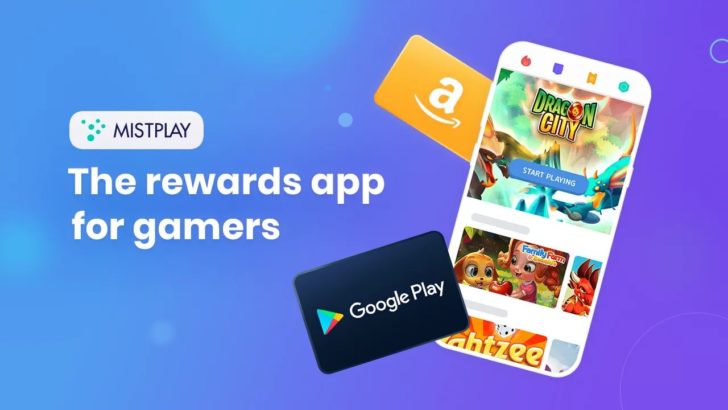Play to earn rewards and change your gaming hobby into a rewarding experience
Play to earn rewards and change your gaming hobby into a rewarding experience
Blog Article
Why Play-to-Earn Incentives Are Changing the Way You Play and Gain
The introduction of play-to-earn models signifies a remarkable shift in the pc gaming landscape, inviting gamers to check out not just the enjoyment worth of video games however additionally their possible as income-generating systems. This paradigm uses diverse advantages, consisting of possession possession with blockchain technology, which basically alters gamer engagement and investment. As this version develops, it provides an one-of-a-kind set of difficulties that can influence its sustainability and appeal. Comprehending these characteristics raises essential inquiries about the future of video gaming and the effects for both gamers and developers alike.
Development of Play-to-Earn Designs
Recently, the video gaming market has seen a considerable change with the introduction of play-to-earn designs, essentially changing exactly how players engage with electronic settings. This cutting-edge strategy permits players to acquire tangible rewards via their in-game tasks, producing a shift from conventional gaming standards where satisfaction and competitors were the primary motivations.
Play-to-earn versions take advantage of blockchain technology and non-fungible tokens (NFTs) to give gamers with possession of in-game properties, which can be traded or cost real-world money. As a result, players are incentivized to spend effort and time into video games, cultivating a sense of agency and economic chance. play to earn rewards. This shift has actually drawn in a diverse gamer base, including those who might have previously watched video gaming as a purely entertainment task
Several systems have arised, showcasing successful implementations of this version, such as Axie Infinity and Decentraland. These platforms have not just produced significant profits but additionally sparked conversations around the sustainability and principles of such financial systems. As play-to-earn designs remain to progress, they promise to redefine the connection between gamers, developers, and the wider electronic economic climate, paving the method for a brand-new era in pc gaming.
Benefits for Gamers
As gamers engage with play-to-earn designs, they open a series of advantages that extend beyond plain home entertainment. Among the most considerable benefits is the potential for monetary rewards. Unlike standard gaming, where players spend money and time without tangible returns, play-to-earn systems enable players to gain copyright or in-game assets that can be transformed to real-world worth. This financial incentive not only boosts engagement but likewise cultivates a feeling of ownership over the gaming experience.
Additionally, play-to-earn models advertise area structure amongst players. Gamers frequently work together to achieve shared objectives, consequently cultivating social connections that enrich the total experience. This feeling of area can cause cooperative gameplay, where players share strategies and sources, boosting both personal and group success.
In addition, these designs can democratize access to pc gaming by enabling players from varied financial backgrounds to profit economically. By taking part in play-to-earn environments, pop over to this web-site individuals can obtain abilities and knowledge concerning blockchain innovation, further widening their occupation chances in the burgeoning electronic economic climate. Inevitably, the advantages for gamers prolong well beyond gameplay, influencing their social, economic, and instructional landscapes positively.
Challenges in the Environment
While the play-to-earn ecosystem provides considerable possibilities, it is not without its difficulties. Changes in value can hinder potential players that look for steady earnings streams.
One more challenge is the danger of rip-offs and deceptive plans that can torment the community. Gamers might run into deceptive platforms guaranteeing high incentives but ultimately resulting in monetary loss. Making certain trust and safety and security is vital for the lasting viability of play-to-earn models.
Furthermore, the environmental effect of blockchain video gaming can not be forgotten. The power intake connected with mining and purchase handling elevates moral inquiries concerning sustainability. Video game programmers have to locate an equilibrium in between fulfilling gamers and lessening eco-friendly impacts.
Finally, the regulative landscape is still developing, positioning potential risks for developers and gamers alike. Uncertain lawful frameworks can impede innovation and limit the development of play-to-earn ecological communities. Resolving these difficulties is vital for recognizing the full possibility of this transformative pc gaming paradigm.
The Role of Blockchain Technology
Blockchain modern technology acts as the backbone of the play-to-earn ecosystem, resolving numerous of the challenges formerly detailed. By using decentralized ledgers, blockchain makes certain transparency and security in purchases. Players can with confidence make and trade in-game assets, recognizing that ownership is proven and exempt to manipulation.

Tokenization of possessions plays an essential duty, giving gamers true possession of their in-game items, which can be gotten, marketed, or traded on different industries. This encourages a vivid secondary market, where gamers can monetize their abilities and time invested in the video game.
Moreover, blockchain innovation enables interoperability between various games and platforms, enabling gamers to carry their possessions throughout various environments. This flexibility not only improves customer experience but likewise advertises a more inclusive video gaming setting, ultimately reshaping the landscape of video gaming and earning.
Future Fads in Pc Gaming
The gaming market is on the edge of a transformative advancement, driven by emerging technologies and moving gamer assumptions. As play-to-earn versions gain traction, players are increasingly seeking immersive experiences that blend amusement with tangible rewards. This shift is prompting designers to innovate, focusing on producing appealing gameplay that promotes neighborhood and communication.
One remarkable fad is the assimilation of digital fact (VIRTUAL REALITY) and augmented reality (AR), enhancing the gaming experience our website by providing deeper immersion and interactive environments. Additionally, advancements in expert system are making it possible for more innovative non-player personalities (NPCs) and flexible gameplay, customizing experiences to private player preferences.

Conclusion
Finally, the play-to-earn version is significantly changing the gaming landscape by enabling gamers to obtain real-world value from their in-game activities. This standard shift not only boosts gamer engagement and financial investment yet likewise raises obstacles that need to be dealt with to ensure sustainability within the ecological community. As blockchain modern technology continues her comment is here to assist in ownership of electronic possessions, the future of gaming assures further innovation and possibilities for players throughout diverse histories.
Report this page